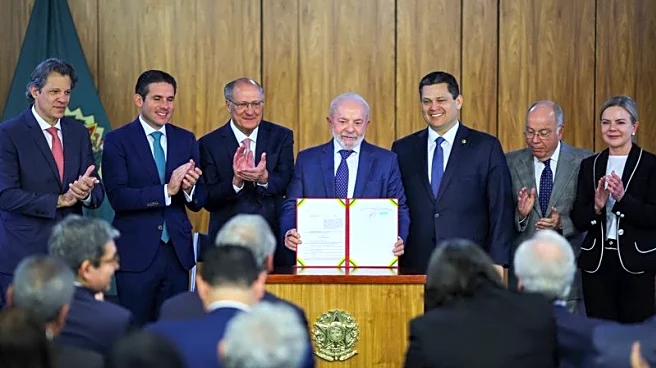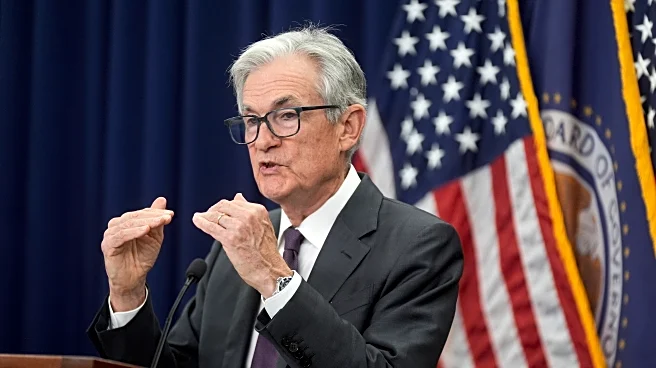What's Happening?
The Brazilian government has announced the 'Brasil Soberano' Provisional Measure following the United States' decision to impose a 50 percent surcharge on Brazilian imports. This measure was unveiled at the Planalto Palace in Brasília, with President Lula and various government and business leaders in attendance. The initiative aims to support national companies affected by the tariffs, particularly in the footwear industry. Key components of the measure include expanding the Reintegra program to offer a 3 percent rebate for all exporters and a 6 percent rate for small businesses, suspending tax payments under the drawback regime for one year, and providing a 30 billion reais credit line for exporting companies. The Brazilian Footwear Industries Association (Abicalçados) has expressed partial satisfaction with these measures, although it continues to seek further actions to protect employment in the labor-intensive sector.
Why It's Important?
The economic measures introduced by Brazil are significant as they represent a strategic response to the US tariffs, which have disrupted trade relations and increased costs for Brazilian exporters. By expanding financial support and tax relief, the Brazilian government aims to mitigate the impact on its industries, particularly those heavily reliant on exports to the US. This move underscores the broader implications of international trade policies and their ability to influence domestic economic strategies. The footwear industry, a major export sector, stands to benefit from these measures, although challenges remain in redirecting exports to other markets due to existing private label agreements. The situation highlights the importance of developing new trade agreements to ensure fair trade and market expansion.
What's Next?
The 'Brasil Soberano' Provisional Measure will be in effect for 120 days, during which it must be approved by the National Congress. The Brazilian government and industry leaders are likely to continue advocating for additional measures to safeguard employment and further support affected sectors. The focus will be on negotiating new trade agreements that promote the export of manufactured products under fair trade conditions. The outcome of these efforts will be crucial in determining the long-term impact on Brazil's export economy and its ability to adapt to shifting global trade alignments.
Beyond the Headlines
The introduction of the 'Brasil Soberano' Provisional Measure reflects broader economic and political dynamics between Brazil and the United States. It highlights the challenges faced by countries in navigating international trade disputes and the need for strategic economic planning. The emphasis on fair trade agreements suggests a potential shift towards more equitable global trade practices, which could influence future negotiations and economic policies. Additionally, the focus on preserving employment in labor-intensive sectors underscores the social implications of trade policies and the importance of balancing economic growth with workforce stability.













